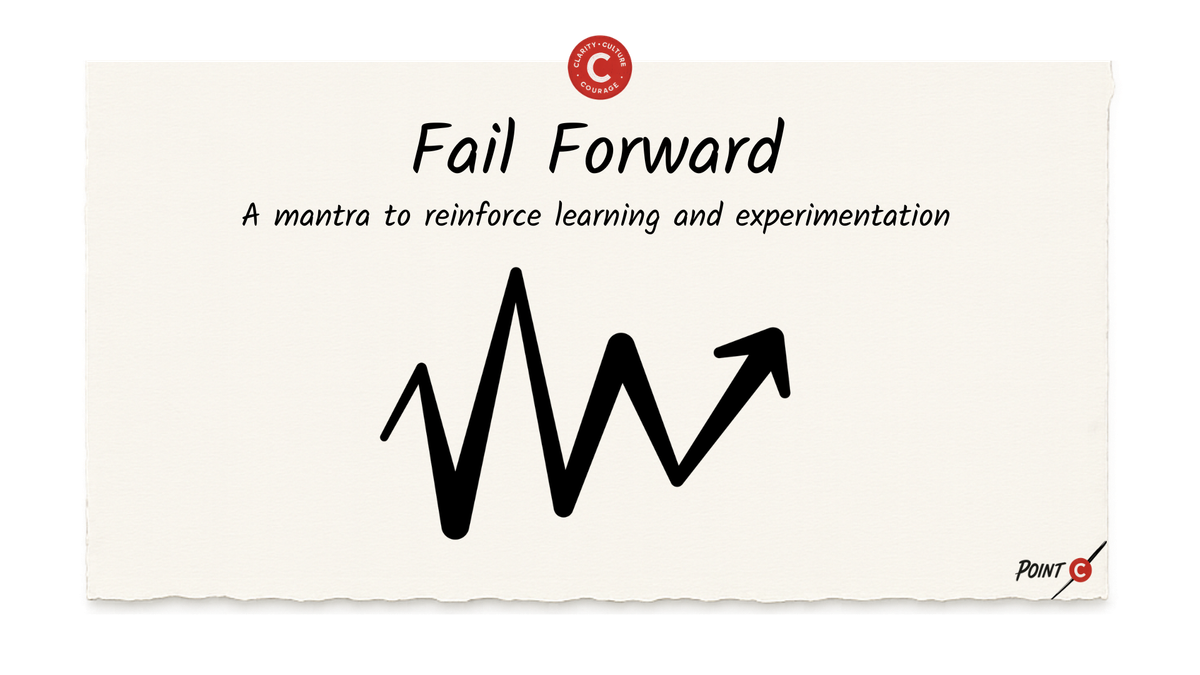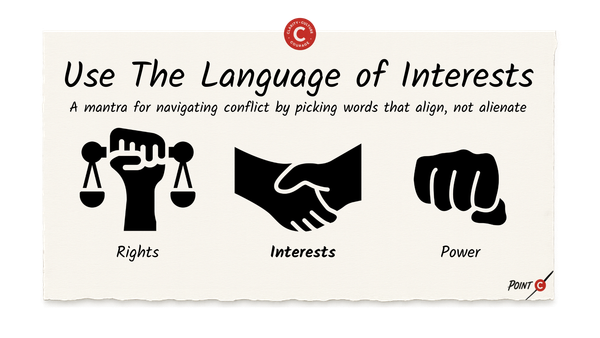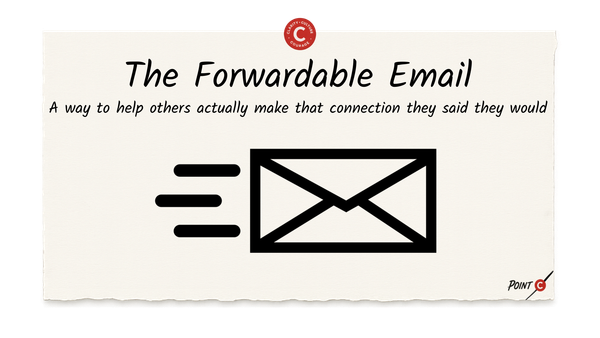Fail Forward
A mantra to reinforce learning and experimentation

Last week in The Idea Bucket, I introduced the seven essential categories that your leadership mantras need to cover:
- How We Solve Problems
- How We Execute Our Work
- Who Makes Decisions (One Consultative Decision Maker Per Lane)
- How We Make Decisions (Always Separate Flaring & Focusing)
- How We Constantly Improve (Feedback is a Gift - Not a Demand)
- How We Communicate
- How We Value Our Time
So far, I've given you an example mantra in three of the categories. Today we dive into my favorite mantra in How We Execute Our Work: Fail Forward
What Does Failure Look Like In Your Organization?
For over a decade, I've been a destination on the whistle-stop tour of Silicon Valley, when leaders from all over the world visit various organizations in The Bay Area as they try to soak up the secrets of innovation.
Whenever a group would come through, I would frame it this way:
If you want to know whether your company has the capacity to innovate, you have to ask yourself this question:
What does failure look like in my organization?
Is failure something that is avoided at all costs? Or is failure embraced and celebrated as the fastest way to learn what can make or break the company?
Most importantly, how is this manifested by the most powerful person in the room (you!)?
Do you punish small failures and reward perfectionism? Or do you show your own work-in-progress and celebrate the learning moments?
Innovation only happens in a culture where the leader constantly reinforces two words: Fail Forward.
How Failure Leads to Success
On the surface, it doesn't make sense:
Corey, of course I don't want to fail. Are you kidding, me? I want to win!
Yes, we all want to win. But you rarely win by being so on the nose.
Building a subculture of innovation requires nuance. And that nuance starts with being clear about how you innovate in the first place. Innovation doesn't come with a perfect plan. It doesn't feel like a path that goes consistently up and to the right.
Innovation is a drunken walk:

This drunken walk of innovation consists of a series of hypotheses validated and dis-validated through small experiments leading to pivots based on new discoveries and insights that are only learned by getting out into the world and allowing yourself to be surprised and inspired.
This state of flux is not a natural state for our reptilian brains to live in. Our survival instincts push us to seek safety in the familiar. We want to survive, so we grab onto the familiar. We tell ourselves we want to win, so we cling to perfectionism.
Innovation leaders must break this cognitive loop. You do that by flipping the definition of success in your team's mind. Success is not slow perfectionism. Success is fast learning.
Innovation leaders don't ask: Did you fail or succeed at what you set out to do?
Instead, they ask: What did you learn from that experiment? How fast did you learn that? What is your updated hypothesis? And what are you going to do next?
Innovation leaders, through their mantras, questions, and personal example, signal that survival in their culture means smart risk-taking, not perfectionist stasis.
Fail Forward, Not Flail
Fail. Forward.
Each of these words matters.
Fail — Start with the assumption that your idea is imperfect. Figure out what’s not working — fast. (That's why you'll also hear me saying the mantra Fail Fast.)
Forward — Your action only counts if it deepens your learning in your strategic space.
Remember, the job of an innovator is not to execute on a perfect plan. It is to constantly understand what your biggest risks are and to spend your limited time and limited resources on reducing those risks.
Therefore, failing forward requires you to define the sandbox that you are learning in. You've scoped a space where you believe there's an opportunity based on converging trends. Through expert and user research and rapid prototyping and testing you are deepening your knowledge in that space through lots of smart failures. You are getting smarter in the space faster through failure so that your next experiment is even more well informed than the previous one.
The misapplication of Failing Forward is Flailing Around.
Flailing is jumping from one space to another without deepening your learning. Flailing comes by reading Fail Fast too on the nose. The goal isn't random failures. The goal is sustained learning.
Don't flail around. Instead, fail forward.
Your Challenge This Week
Practice the Fail Forward mindset.
1) Pick a day in the coming week where you want to be intentional about encouraging experimentation and learning within your organization.
2) Write Fail Forward on a post-it note and stick it to your laptop or notebook so that you have a persistent reminder throughout the day for reinforcing this mindset.
3) In every meeting you have on that day, lead with a Fail Forward mindset. This can include:
- Leading by example - Show your imperfect work in progress. Share a quick failure and what you learned from it.
- Asking questions - Frame all of your questions from a learning perceptive rather than an outcomes perspective. What did you learn and what are you going to do next?
- Say The Words - Fail forward. Work this into your vocabulary with your team to start planting the seeds of what will be rewarded in your team. Say it at least three times throughout the day
4) Reflect. What shift did you see in your team and in yourself by approaching the day with the intention to reinforce the Fail Forward mantra?
Next Week
We've now got four mantras across four essential categories in our back pocket:
- How We Execute Our Work (Fail Forward)
- Who Makes Decisions (One Consultative Decision Maker Per Lane)
- How We Make Decisions (Always Separate Flaring & Focusing)
- How We Constantly Improve (Feedback is a Gift - Not a Demand)
Next week, we'll dive into my favorite mantra for How We Value Our Time: Honor The Maker's Schedule
About This Newsletter
The Idea Bucket is a weekly newsletter and archive featuring one visual framework, supporting one act of leadership, that brings you one step closer to building a culture of innovation.
It’s written by Corey Ford — executive coach, strategic advisor, and founder of Point C, where he helps founders, CEOs, and executives clarify their visions, lead cultures of innovation, and navigate their next leadership chapters.
Want to explore how strategy and storytelling come together? Check out The Venture Story — my first mini-book and leadership storytelling framework.
Want to give your teams an immersive learning experience on these concepts? Bring me in to run The Point C Training Camp at our company.
Want 1:1 executive coaching on this framework or others? Book your first coaching session. It's on me.




